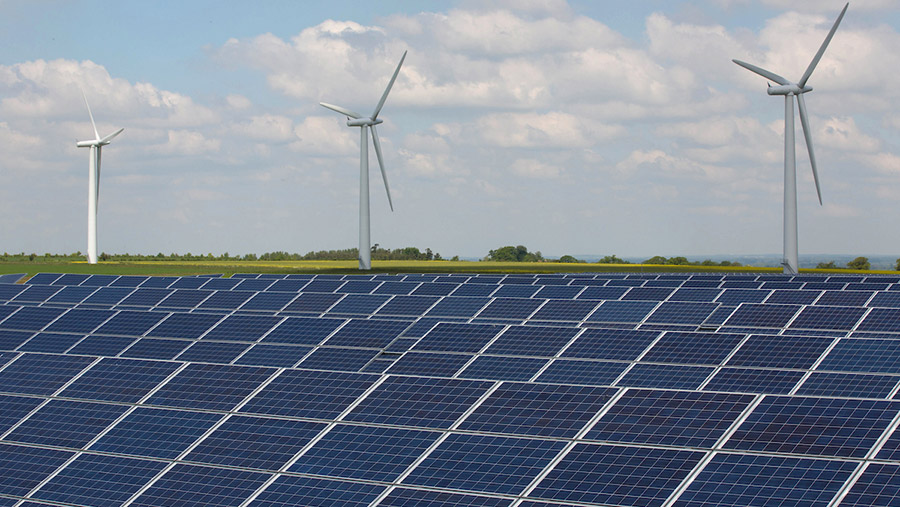Petition launched to stop solar farms on productive farmland
 © Tim Scrivener
© Tim Scrivener An online petition has been launched that calls for more government protection from the loss of prime agricultural land to solar projects.
The Solar Campaign Alliance has recently established a parliamentary petition to ask Boris Johnson’s government to intervene before the UK loses a critical mass of productive farmland to solar.
The petition states: “Agricultural land is a finite resource. We believe there is currently a policy conflict where government seeks to protect and enhance our domestic production to maintain food security while also encouraging the growth of solar energy production.
See also: Large solar project will ruin prime land, say campaigners
“New ground-mounted solar developments must be subject to increased regulation to ensure they do not undermine UK food security, which could result in increasing food costs.”
It has been launched amid concern within the farming industry about the increasing number of planning applications to build large solar energy farms across the UK.
The alliance estimates up to 4,047ha of productive farmland will be lost in Nottinghamshire, Lincolnshire and Derbyshire alone if large solar energy projects in the pipeline are approved.
These include the West Burton and Cottam, Gate Burton, Mallard Pass and Alfreton solar proposals.
A consultation for the Gate Burton Energy Park, which is proposed for land near Gate Burton, Lincolnshire, is under way.
The energy companies behind the solar projects say they generate “clean” energy for 40 years, which significantly reduces carbon emissions and can help the country meet its net-zero targets.
However, during this period, the land used for solar is unable to grow arable crops or raise livestock, except for some grazing sheep.
Change of income
Arable farmer Chris Hardy farms a 32ha cereal farm alongside his father Philip near the conservation villages of Clayworth and Gringley, in north Nottinghamshire.
Mr Hardy said he was concerned that landowners were changing their income from farm subsidies to leasing their land to large solar energy companies.
“It is almost weekly that there is another planning application for another solar project that goes in. We’re looking thousands of acres being taken in our area,” he said.
“Food security is a worry, especially when you look at what is happening between Russia and the Ukraine. Russia is the biggest exporter of wheat in the world. If it puts an embargo on wheat exports, everybody’s food prices will be going up.
“We need to be self-sufficient in food and I would question the wisdom of taking good arable land out of production.”
Industry reaction
NFU deputy president Stuart Roberts said: “Renewable energy production is a core part of the NFU’s net zero plan and solar projects often offer a good diversification option for farmers.
“As with any land use projects, we need to strike a balance to ensure we can continue to produce quality, sustainable food for the nation while also delivering on our net zero ambition.
“The NFU’s preference is that solar farm development is located on lower quality agricultural land, avoiding the most productive and versatile soils.”
The Campaign to Protect Rural England (CPRE) said while it supported renewable energy, there were serious concerns about a lack of strategically planned, brownfield first approach to solar, which was particularly the case when agricultural land is targeted first.
Paul Miner, CPRE head of land use and planning, said: “That’s why we need to be smart in our approach. It makes no sense to let the countryside become a patchwork quilt of solar panels, generating huge public opposition when no one would bat an eyelid if they were put on the roof of every warehouse in the country.
“Indeed, many people would be delighted at the prospect of hundreds of thousands of industrial and commercial units becoming a modernised network of rooftop renewable energy. There are workable solutions to both protect and enhance the countryside at the same time as upgrading our electricity network. What we now need is a proper plan.”
